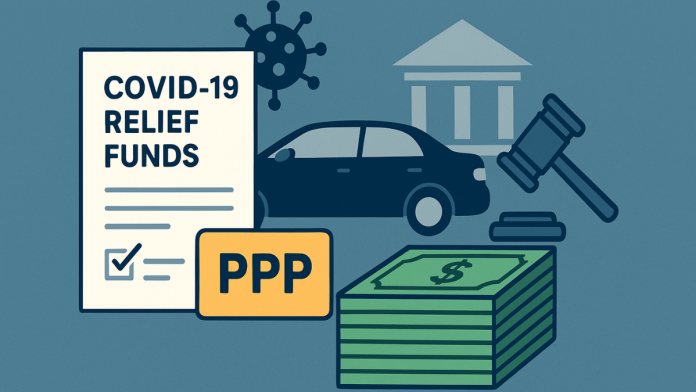Irvin C. Francois III, a 54-year-old man from New Orleans, has pleaded guilty to committing fraud and money laundering related to the Coronavirus Aid, Relief, and Economic Security (CARES) Act. On September 23, 2025, Francois appeared before United States District Judge Jay C. Zainey and admitted to making false statements to obtain a federal loan through the Paycheck Protection Program (PPP).
The CARES Act was signed into law on March 27, 2020, to provide emergency assistance to small businesses affected by the COVID-19 pandemic. The PPP was one of the primary ways the government helped businesses maintain payroll and stay operational during the economic downturn caused by the health crisis.
According to charging documents, Francois applied for a PPP loan on behalf of a business he owned. He provided false information to an approved lender to secure approximately $144,790 in government funds. These funds were meant to support employees and help businesses manage expenses during the pandemic. By submitting misleading information, Francois obtained money that was intended for businesses genuinely in need.
Michael Palleschi, former FTE Networks CEO, sentenced to 12 years for accounting fraud
Making false statements on a federal loan application is a serious crime. It undermines government programs designed to assist small businesses during emergencies and can lead to significant legal consequences.
Money Laundering and Misuse of Funds
After obtaining the PPP loan, Francois committed money laundering by using the fraudulently acquired funds to purchase a vehicle from a dealership in Kenner, Louisiana. Money laundering involves concealing the origins of illegally obtained funds, often by spending them on high-value items or moving them through various transactions to make them appear legitimate.
By using the stolen funds for personal gain, Francois’s actions escalated the seriousness of the crime. Investigators noted that misusing pandemic relief funds not only harms public trust but also prevents other businesses in need from receiving support.
Francois faces two federal charges: making false statements and money laundering. Each charge carries significant penalties. The false statement charge carries up to five years in prison, while the money laundering charge carries up to ten years. Both charges also include fines of up to $250,000, up to three years of supervised release, and a mandatory special assessment fee of $100. Sentencing is scheduled for January 6, 2026, before Judge Jay C. Zainey.
Matthew Derrick Hudson charged with wire fraud in $100 million U.S. investor scheme
Investigation and Legal Action
The case was investigated by the Pandemic Response Accountability Committee (PRAC) Fraud Task Force, which brings together agents from multiple federal agencies to monitor pandemic-related spending. PRAC was created to ensure transparency and detect fraud, waste, and abuse in the government’s response to COVID-19.
The investigation was carried out by agents from the Internal Revenue Service – Criminal Investigation and the U.S. Department of Veterans Affairs Office of Inspector General, both of which are members of PRAC. These investigators have expanded authority to look into pandemic relief fraud and receive specialized training to handle such cases.
Acting U.S. Attorney Michael M. Simpson praised the work of the investigative teams. Assistant U.S. Attorney Edward J. Rivera of the Financial Crimes Unit is handling the prosecution. The Department of Justice has also urged the public to report any suspected fraud related to COVID-19 relief through the National Center for Disaster Fraud (NCDF) hotline or online complaint form.
This case highlights the efforts of federal agencies to prevent misuse of pandemic relief funds and ensure that the programs reach businesses genuinely affected by the crisis. It also serves as a reminder that attempting to defraud the government carries serious consequences, including federal prison time, fines, and long-term legal implications.


